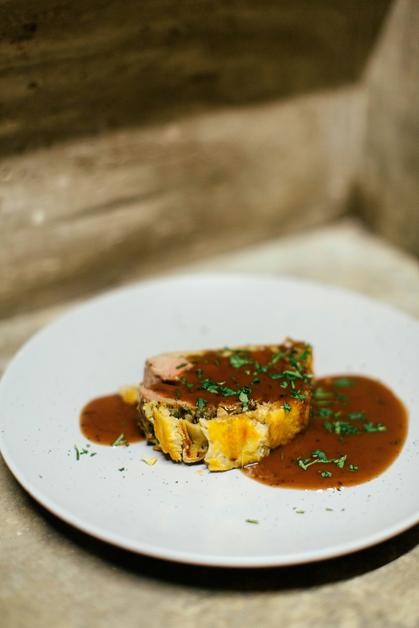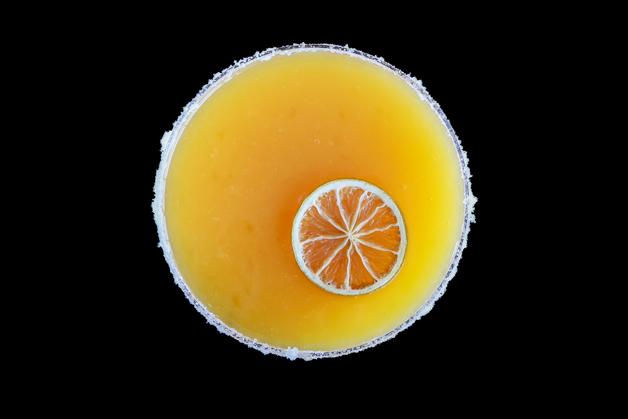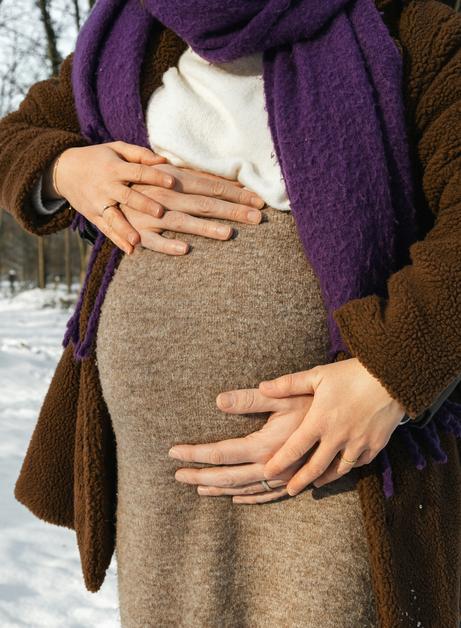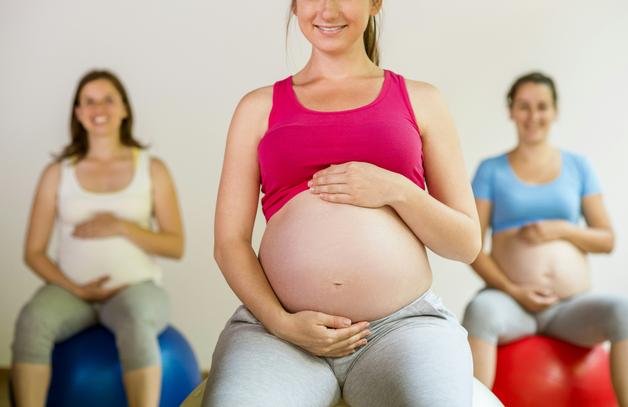A celebration, an invitation, perhaps a family gathering or a festive dinner during pregnancy—immediately, a torrent of emotions swirls. You want to cherish the moment, but every forkful seems to carry a question mark. And then, someone gently slides a plate near you—rich, decadent slices of foie gras. Instantly, a doubt sneaks in: foie gras pregnancy—is this combination safe, wise, even possible? The ritual of sharing, the longing to belong, and the instinct to safeguard your growing baby: how can parents reconcile all these facets at once? If you’ve ever wondered whether this delicacy fits into a healthy pregnancy, you’re not alone. Let’s unpack the realities, myths, and practical solutions so you decide with confidence, not confusion.
Foie Gras Pregnancy—Understanding the Luxury and Its Complexities
First, what exactly is foie gras? Picture a dense, buttery slice—achieved not by chance, but by specially feeding ducks or geese until their liver becomes smooth and enlarged. This gourmet process, cherished for centuries, has decorated celebratory tables across generations. Yet, the allure of foie gras pregnancy raises more questions than taste alone can answer.
Here’s the dilemma: foie gras, being the liver of duck or goose, naturally accumulates a substantial load of vitamin A (retinol), saturated fats, and—if not properly cooked—potentially dangerous bacteria. That’s why, during pregnancy, “can I eat this?” is not merely a tradition-versus-health debate. Microbes like listeria or salmonella are invisible gatecrashers, uninvited but persistent, just waiting for a lapse in heat or hygiene. Not to mention, the luxury label on the box has no bearing on safety if the temperature or process isn’t right.
Health and Infectious Risks—The Science Behind the Caution
Infectious Dangers: Listeriosis, Toxoplasmosis, Salmonellosis
Why so much concern surrounding foie gras pregnancy? Let’s break it down. The liver, by design, filters and stores, which means it’s a magnet for both nutrients and toxins. An undercooked or raw foie gras—often labelled “mi-cuit” or artisanal—can harbour listeria monocytogenes, a bacterium which, although potentially mild for many, becomes a much bigger threat in pregnancy: miscarriage, premature delivery, or serious newborn infections lurk as real-world possibilities. Striking, isn’t it?
And it’s not just listeriosis. Toxoplasmosis (a parasitic infection) may also find its way in if the product is raw or insufficiently cooked—especially problematic if you never had prior exposure and immunity. For some, this is a scary prospect, with risks like neurological or ocular problems for the baby. Salmonella, another notorious microbe, prefers food that’s been “left out a little too long” or never cooked through. Digestive upsets, dehydration, or fever are never ideal pregnancy companions.
Nutritional Aspects: Vitamin A, Fats, and Cholesterol
Now, zoom into nutrition. Foie gras pregnancy brings forth an often-overlooked challenge: immense vitamin A content. This essential vitamin—vital for fetal growth—can cross the line. Too much retinol, especially from animal organs, can—rarely but significantly—result in birth defects. The conundrum? Not getting enough vitamin A carries risks. But excess, particularly from high-dose liver-based products, tips the scale toward congenital anomalies. Moderation isn’t just wise advice; it’s science-backed.
Don’t forget about the fat: yes, foie gras boasts beneficial unsaturated fatty acids and micronutrients like iron and selenium, but it’s also dense in cholesterol and saturated fat, which can complicate things—especially if you have pre-existing health conditions. Curious about the exact specifics? Even two or three slim slices can provide a significant chunk of your daily vitamin A allowance.
Choosing Safe Foie Gras: Cooking Methods, Labels, and Storage Wisdom
So, what if a special moment beckons, and you’re determined to enjoy without regret? Here are some life-saving distinctions:
- Cooked Foie Gras (Above 100°C / 212°F): Industrially cooked, sealed, and heated to high temperatures, this version offers far more reassurance. Pasteurisation destroys bacteria and parasites—thereby making foie gras pregnancy safer.
- Pasteurised or Canned Foie Gras: Industrial tin or jar, with a “pasteurised” label, signals extra safety. However, remember—these products need unwavering refrigeration (below 4°C or 40°F) at all stages, from store shelf to home fridge.
- Pan-Seared: Enjoy, but only if you’re certain every bit is thoroughly cooked; a golden crust outside doesn’t guarantee core safety.
- Raw, Homemade, or Artisanal Versions: No matter how compelling the tradition or appetite, resist. These lack industrial food safety assurances; cross-contamination and undercooking risks remain too high.
Pause here and ask yourself: do you know how your foie gras was processed? Can you be absolutely sure about its handling? If the answer is hazy, skip the risk.
Foie Gras Alternatives—Safe Delicacy, Festive Flavours
You’re not doomed to “watch others eat” at festivities. There are state-of-the-art alternatives, both in terms of taste and safety. Vegetarian “faux gras” spreads—featuring chickpeas, mushrooms, or even seaweed and nutritional yeast—bring a similar savoury depth without the microbial risks, making them stand out during foie gras pregnancy dilemmas. Fish rillettes, terrines, or simply creamy avocado and cooked mushroom tapenade can transform your plate and conversation.
What about the nutrients? These substitutes are versatile: less saturated fat, no dangerous parasites, and you can tweak the recipe for a boost in healthy omega-3s, fibre, and plant-based minerals.
Precautionary Checklist—Smart Habits for Maximum Safety
Want practical steps? Here’s your go-to list for foie gras pregnancy safety:
- Always buy from reliable stores with traceable supply chains.
- Inspect labels for “pasteurised”, “sterilised”, or “cooked above 100°C”.
- Transport with ice packs, immediately refrigerate below 4°C, and never consume products left out at room temperature.
- Use impeccably clean cutting utensils and separate boards for different foods.
- Once opened, finish the product within 24–48 hours (ideally sooner).
- Limit yourself to two or three dainty slices—enough to savour, not enough to overload.
A few simple habits truly bridge the gap between festive delight and peace of mind.
Nutritional Value—A Double-Edged Sword
On the micronutrient front, foie gras scores high with iron (for red blood cell production), selenium (a remarkable antioxidant), and vitamin B12 (vital for fetal nervous system development). Yet, the high concentration of retinol and fat cannot be denied. It’s a high-risk, high-reward food in some respects—an occasional treat, not a dietary mainstay, especially during foie gras pregnancy.
Guidance from Medical and Health Experts
International authorities, like ANSES (French Agency for Food, Environmental and Occupational Health & Safety) and insurance bodies, agree on one point: only fully cooked, pasteurised, and factory-sealed foie gras—handled under strict cold chain conditions—earns a “yes” (and even then, only in small portions). Sight of even mild symptoms (unexplained fever, digestive trouble, sudden pain) after consuming foie gras pregnancy foods warrants a thoughtful call to your doctor—better to ask than risk guessing. No shame, no guilt; your concerns deserve attention.
Key Takeaways
- Foie gras pregnancy safety hinges on thorough cooking, pasteurisation, and proper storage. Avoid raw, homemade, or artisanal foie gras.
- Practise food hygiene rigorously: cold storage, sterile utensils, and rapid consumption post-opening are your friends.
- Savour alternatives without hesitation: vegetarian spreads, cooked fish terrines, and plant-based rillettes are festive and safe.
- Beware the double-edged nature: foie gras is nutritious yet potentially overwhelming in retinol and saturated fat—moderation is essential.
- Should you spot any symptoms or have doubts post-consumption, don’t hesitate to reach out to a healthcare provider.
- Equip yourself confidently with support tools like the Heloa app, offering tailored help and free health questionnaires for your child—because reliable advice should be just a tap away.
Questions Parents Ask
Is it safe to eat foie gras while breastfeeding?
Breastfeeding often invites new food-related considerations. Good news: if your foie gras is well cooked, pasteurised, and eaten in reasonable quantities, it’s generally safe. Stick to products from reputable, traceable sources. Keep an eye on your baby’s tolerance; any unusual reactions (like digestive disturbances) are a sign to pause and check with your healthcare provider.
Are there any long-term effects on the baby if foie gras is consumed during pregnancy?
Generally, if a small quantity of properly processed foie gras was eaten during pregnancy, persistent risks are not scientifically substantiated. Recommendations primarily target foodborne infection prevention and avoiding high vitamin A intakes. If you incidentally consumed inappropriate foie gras, don’t be alarmed—long-term issues are rare. Any concerns or symptoms? Consult your doctor for reassurance.
Can foie gras consumption affect my cholesterol or blood pressure during pregnancy?
Pregnancy naturally influences blood lipid and pressure regulation. For most, modest, occasional intake of foie gras pregnancy foods within a balanced diet is not hazardous. However, pre-existing high cholesterol or hypertension means you should be extra careful. Discuss personalised guidance with your healthcare provider, as every situation is unique and solutions exist to harmonise pleasure with health.









